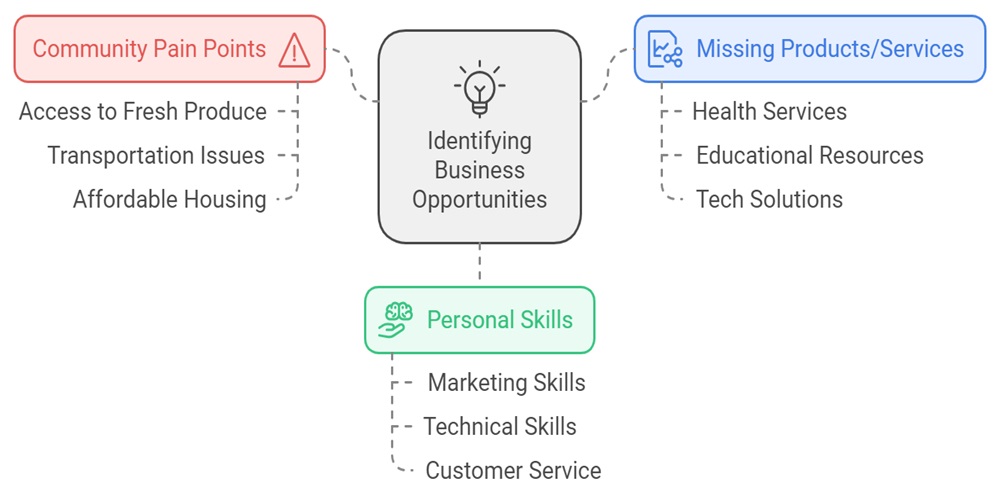How to Start a Profitable Business with Little or No Capital: A Step-by-Step Guide for Nigerian Youths
Starting a business can seem overwhelming, especially when capital is scarce. However, with creativity, resourcefulness, and determination, you can launch a profitable business even with minimal or no initial funds. This guide is tailored for Nigerian youths, focusing on practical steps you can take today to turn your entrepreneurial dreams into reality.
Why Start a Business with Little or No Capital?
In Nigeria, the youth unemployment rate remains high, and many people lack access to large amounts of startup capital. Starting small can help you:
Minimize risk: Testing your business idea on a small scale allows you to learn and grow without huge financial risks.
Be resourceful: You’ll learn how to make the most out of the resources you have, which builds long-term business resilience.
Scale progressively: Starting lean lets you scale gradually as your business begins to generate revenue.
Step 1: Identify a Problem You Can Solve
The foundation of any successful business is solving a problem. Look around your community, neighborhood, or even on social media and think about common problems people face daily.
Ask Yourself:
What are the pain points in my community?
Is there a product or service that is missing?
What skills do I have that can solve these problems?
Example:
In a community where access to affordable fresh produce is limited, you could start a business sourcing fresh fruits and vegetables from nearby farms and selling them at affordable prices.
Step 2: Use Skills You Already Have
One of the best ways to start a business without capital is to leverage the skills you already have. You don’t need to invest in expensive inventory or infrastructure. Instead, offer services that require little to no upfront costs.
Ideas Based on Your Skills:
Digital Skills: If you know how to design websites, run social media accounts, or edit videos, offer these services to small businesses.
Teaching/Tutoring: If you’re knowledgeable in a specific area (e.g., mathematics, coding, language skills), start tutoring classes either online or offline.
Handicrafts: If you can make jewelry, sew clothes, or create home décor, start offering handmade items to friends, family, and on social media.
Step 3: Start Small, Grow Big
Many successful businesses started on a small scale. Don’t worry if you’re beginning from scratch; it’s better to start than to wait for the “perfect moment” (which may never come).
How to Start Small:
Freelancing: Offer your services on platforms like Fiverr, Upwork, or even locally via WhatsApp and Instagram.
Sell to your network: Start with friends and family. They are your first customers and can help you spread the word.
Rent instead of owning: If you need equipment (e.g., for baking or photography), consider renting instead of purchasing until you can afford to invest in your own.

Step 4: Utilize Free Tools and Resources
In today’s digital age, there are numerous free tools that can help you build your business without spending a dime. Use these tools to build your brand, reach potential customers, and manage operations.
Free Tools to Get You Started:
Social Media: Instagram, Facebook, and Twitter are excellent platforms for free business promotion.
Free Website Builders: Use platforms like Wix or WordPress to create a simple, professional website.
Free Design Tools: Canva offers free design templates for creating promotional materials, logos, and business cards.
WhatsApp Business: This tool allows you to communicate with customers professionally and manage orders more efficiently.
Step 5: Take Advantage of Free Learning Resources
Entrepreneurship is a continuous learning journey. Thankfully, there are countless free courses, webinars, and resources online that can teach you how to grow your business, improve your skills, and manage your finances.
Learning Resources for Nigerian Entrepreneurs:
YouTube: Watch free tutorials on topics like digital marketing, small business management, and accounting.
Coursera /edX / Jomidoo Business Academy: Many platforms offer free courses in entrepreneurship, finance, and leadership.
Google for Startups: Offers a wide range of resources and training programs for small business owners.
Step 6: Network and Collaborate
Networking is one of the most important skills for an entrepreneur. Build relationships with other business owners, mentors, or people who are experts in areas where you may be lacking.
Tips for Networking:
Attend free business events: Many communities and organizations (such as Tony Elumelu Foundation, Fate Foundation) offer free or affordable networking events and workshops.
Join online communities: Facebook groups, LinkedIn, and other social media platforms are great for finding like-minded entrepreneurs.
Collaborate: Consider partnering with others to share resources, reduce costs, and expand your reach.
Step 7: Reinvest Your Profits
Once your business starts making money, resist the temptation to spend it all. Instead, reinvest your profits back into the business to help it grow. Buy better equipment, hire more help, or expand your product/service offering.
How to Reinvest Wisely:
Upgrade tools: Purchase essential tools or software that will improve your efficiency.
Expand marketing: Use your profits to invest in affordable paid ads or better branding materials.
Build your team: As you grow, hire people who can help take your business to the next level.
Step 8: Seek Small Business Grants or Loans
Although you’ve started without capital, there are several grants and small business loans available in Nigeria to help grow your business. Some require no collateral, while others provide seed funding for youth entrepreneurs.
Where to Find Grants/Loans:
Tony Elumelu Foundation (TEF) Entrepreneurship Programme
Bank of Industry (BOI) Loans
Lagos State Employment Trust Fund (LSETF)
Youth Enterprise with Innovation in Nigeria (YouWIN)
Conclusion:
Starting a profitable business with little or no capital is possible if you’re willing to think creatively, leverage your skills, and take advantage of free tools and resources. Nigerian youths are in a unique position to become entrepreneurs and drive innovation in their communities. Don’t let the lack of capital hold you back—start small, stay focused, and grow gradually.
If you’re ready to take the next step in your entrepreneurial journey, join our community for more tips, resources, and networking opportunities!
Join Here:
Join our WhatsApp group of young Nigerian entrepreneurs for exclusive tips and opportunities: WhatsApp group
